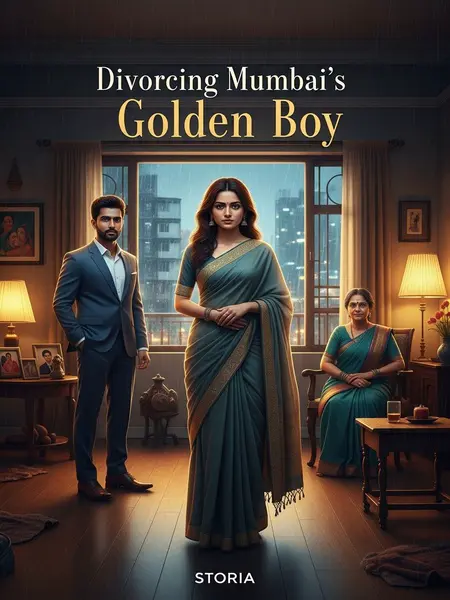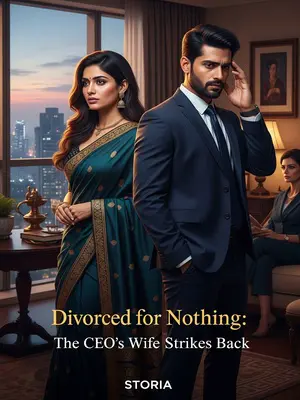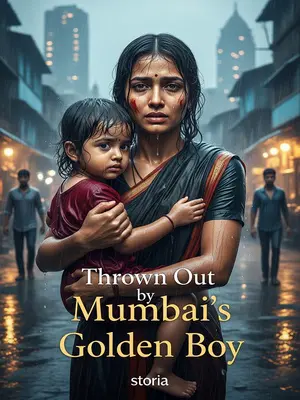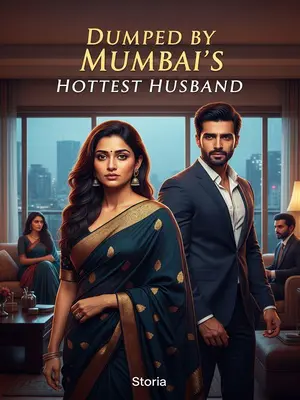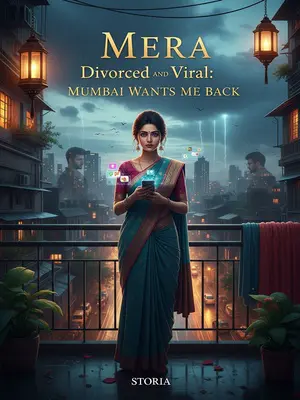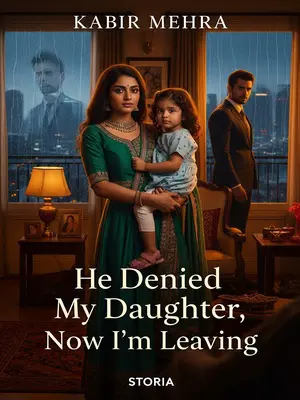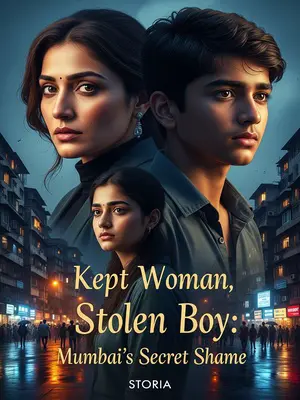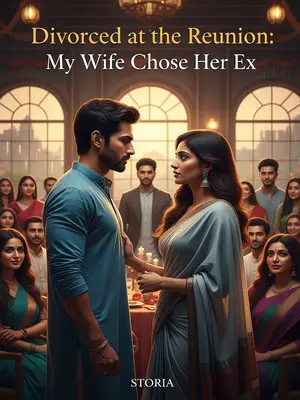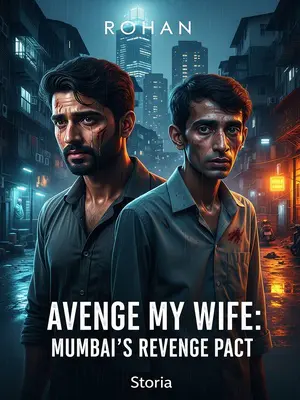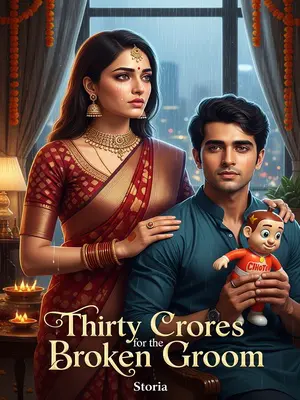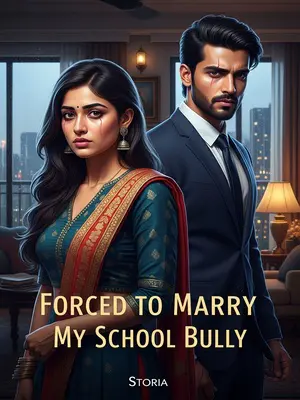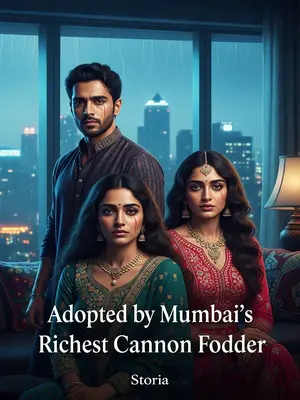Chapter 1: The Blue Line and the Barrage
In the third year of my marriage to Arjun—the so-called 'Buddhist golden boy' among Mumbai’s elite—I found out I was pregnant.
The city’s humidity pressed against my skin, the distant honking of autos weaving through the morning, while the lingering aroma of last night’s sandalwood incense mingled with the damp air. As I stared at the little blue line, the ceiling fan’s lazy rotation barely masked my racing heartbeat. It should have been a moment for mithai, bashful glances, maybe a quick call to Ma. But my hands shook—not with excitement, but with the heaviness of every word left unspoken between Arjun and me.
Just as I planned to surprise him, my phone pinged—a photo in bed: explicit, undeniable.
The phone buzzed so violently I nearly dropped it onto the marble floor. Instinctively, I glanced over my shoulder, scanning the corners of our flat, checking if anyone—Ma-in-law, the maid, or a wandering cousin—might catch even a glimpse of my screen. The sight on the display twisted my heart: Arjun, sprawled on sheets I recognised, with someone I knew far too well.
"I slept with your best friend."
His WhatsApp voice note arrived next, his tone almost casual, as if he were just sharing the latest cricket score. "Honestly, it felt amazing."
Before I could process the shock, my phone was lit up by a barrage of WhatsApp forwards and Insta comments, the way only Mumbai’s nosy auntie network can deliver—my mami in Chembur, cousin Pinky in Hyderabad, even the aunties from our society group had their two paisa to add. The whole internet auntie squad was weighing in, like I’d become the main plot of their favourite daily soap.
"He didn’t really sleep with her—the hero is just trying to make you jealous, so you’ll fall even harder for him."
"You’re always working, you’ve neglected our Arjun babu. He just wants you to quit your job and depend on him—so you’ll never leave."
"Heroine, coax him! Let a few tears fall, tell him you’re jealous—he’d give you his life. Bas ab rona bandh kar, sab theek ho jayega."
But I didn’t want his life. Instead, I went to the hospital.
At the hospital, the waiting room’s AC blasted cold air, but sweat gathered at my temples. I scanned the anxious faces—young women in printed salwars, an old uncle coughing into a checked handkerchief, the nurse humming an old Lata Mangeshkar song. The sharp tang of Dettol clung to everything, making the world feel even more raw.
"Doctor, I don’t want the child."
No sooner had I spoken than the barrage reignited—my phone vibrating with angry messages: the family group, the office grapevine, even my old tuition teacher sent a voice note. In India, everyone feels entitled to weigh in. The world seemed determined to guilt me for even considering this step.
"The child is innocent! The hero hasn’t done anything unforgivable—what you’re doing is cruel. Shaadi mein sab adjust karte hain."
"Is this really necessary? The hero only used the wrong method because he loves you too much. Why punish an innocent life? It wouldn’t kill you to just give in to him."
"Our poor hero, how did he end up with such a heartless heroine? She’s acting like the villainess."
"I’ll say it again—the hero has only ever slept with you, and only you can turn him on."
I ignored the barrage, crumpling the hospital slip in my hand and tossing it into the dustbin.
The paper felt heavier than it should, carrying all the faded dreams I once had as someone’s daughter, not just someone’s wife. The nurse shot me a look of quiet pity, but I squared my shoulders, letting my chappals slap hard against the tiles—each step a small act of rebellion.
But as I stepped into the corridor, a fresh wave of anxiety swept over me. What if someone from my building saw me here? Or worse, one of Ma’s kitty party friends, eager to dissect my every move at the next gathering? The fear of being spotted clung to me as tightly as my dupatta.
Suddenly, Arjun appeared, blocking my way.
He stood there, sunglasses perched on his head, phone in hand, reeking faintly of aftershave and last night’s whisky. Even now, he had the air of someone who expected the world to part for him.
"What are you doing at the hospital?"
I pinched the bridge of my nose. "Didn’t sleep well last night. I’ve got a headache."
My voice was flat, but my mind was a tangled mess. The echo of footsteps and distant announcements nearly drowned out my words.
Those photos and messages had come straight to my phone. I’d sat in the living room all night, calling him again and again, but he never answered.
I remembered sitting by the window, watching the blinking lights of Marine Drive, clouds heavy in the sky, Mumbai refusing to sleep. My phone grew hot in my hand with each unanswered ring—a slap every time.
According to the barrage, Arjun hadn’t slept either—he’d been swirling a glass of Old Monk, listening to my ringtone, letting it ring and ring, drinking in my desperation like it was proof of love.
The voices in my head wouldn’t stop, painting his smug face in the dim light, as if my suffering was some twisted prize.
Hearing my excuse, Arjun’s lips curled in satisfaction. He spoke as if bestowing a royal favour: "Alright, I promise you—I won’t stay out overnight anymore."
There was a smugness in his tone, the kind reserved for dramatic dialogues in old Hindi movies. He squared his shoulders, waiting for applause.
I didn’t respond, just rubbed my aching head.
The silence grew, stretching taut between us. Somewhere down the hall, an ambulance siren wailed and faded, a reminder of other emergencies, other heartbreaks.
As I turned to leave, I felt his eyes burning into my back—just like Ma would watch to see if I touched her feet after coming home from hostel. In India, love is often measured by rituals and gestures we perform for others.
The barrage chimed in:
"Quick, let the tears fall! Hug him, red-eyed, and say you’re jealous—tell him seeing him with another woman breaks your heart. Dekh, hero ke aankhon mein chamak aa gayi."
"If you say you love him now, he’ll be over the moon."
I took a deep breath, pretending not to notice, and kept walking.
My dupatta slipped off my shoulder and I fumbled to adjust it, tightening my grip on my handbag, refusing to let my discomfort show. My steps echoed down the corridor—steady, unhurried, though my heart raced.
Suddenly, Arjun caught my hand, his grip tight and cold, a possessive claim.
The suddenness made me flinch. His fingers pressed into my wrist, as if he needed to prove ownership in front of strangers.
"Meera, don’t you have anything to say to me?"
I met his gaze. "What do you want me to say?"
My voice was sharper than I intended. Our eyes locked—his brimming with expectation, mine refusing to yield.
He snapped, "Are you made of wood? Kabhi toh kuch mehsoos karo! Sometimes I really want to crack open your heart and see what’s inside. Tumhe sharam nahi aati?"
The old Arjun flashed in his words—the boy who never lost at gully cricket and couldn’t bear not being the center of attention.
The barrage:
"Heroine, if you just say your heart is full of him, you’ll calm him down. Bas karo, yaar. Just say something sweet and everything will be fine."
Expressionless, I pulled out my phone, opened the bed photo, and held it up for him to see.
My hand didn’t tremble. My eyes never left his. This time, I let the silence carry all my words.
"Arjun, what do you want?"
He froze, his brows arching.
His jaw tensed, his eyes flickering—guilt, or calculation? I waited.
"It was just a dare—truth or dare. If you’re jealous, then in the future…"
He trailed off, his voice softening, searching for a way to spin the moment. The old charm, the half-smile—always acting.
"Have you ever thought about my feelings?" I cut in, bitterness tightening my chest.
My voice nearly broke. For a second, even the barrage in my head went silent. The hospital corridor seemed to close in on us.
His mood shifted—a trace of amusement now. "It was a prank, yaar. Just a joke. Zaroori hai kya itna overreact karna?"
He said it like men do—shrugging off wounds, expecting women to laugh along. Daring me to contradict him.
Just then, a nurse passed by, pausing to glance curiously at us, and a ward boy lingered a moment too long, their eyes sharp with judgment. The shame prickled under my skin, but I stood my ground.
